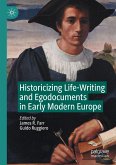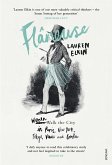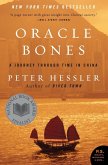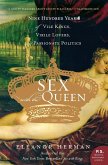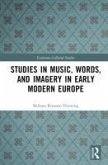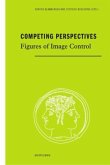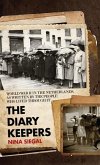This volume historicizes the study of life-writing and egodocuments, focusing on early modern European reflections on the self, self-fashioning, and identity. Life-writing and the study of egodocuments currently tend to be viewed as separate fields, yet the individual as a purposive social actor provides significant common ground and offers a vehicle, both theoretical and practical, for a profitable synthesis of the two in a historical context. Echoing scholars from a wide-range of disciplines who recognize the uncertainty of the nature of the self, these essays question the notion of the autonomous self and the attendant idea of continuous identity unfolding in a unified personality. Instead, they suggest that the early modern self was variable and unstable, and can only be grasped by exploring selves situated in specific historical and social/cultural contexts and revealed through the wide range of historical documents considered here. The three sections of the volume consider:first, the theoretical contexts of understanding egodocuments in early modern Europe; then, the practical ways egodocuments from the period may be used for writing life-histories today; and finally, a wider range of historical documents that might be added to what are usually seen as egodocuments.
"Editors James R. Farr and Guido Ruggiero have fashioned a compelling collection of essays that explore and enlighten on a subject ... . I found the variety of treatments of the general theme not only interesting but helpful and revealing. The distinct methods and points of view that each of these contributors brought to bear on their subjects has created a series of essays that, collectively, provide a greater depth of understanding of the general theme." (Alex Hunnicutt, H-Net Reviews, h-net.org, March, 2023)



